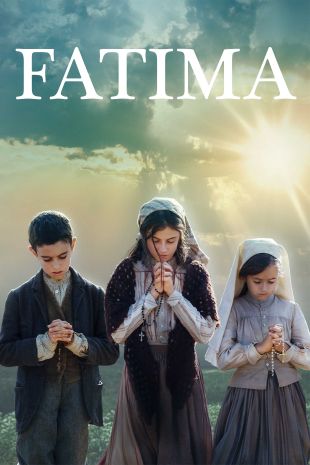
Fatima is a period drama based on historical events and pertains to three young shepherd children who live in Fatima, Portugal. When they witness divine visions of Mother Mary, they are faced with the awkward and potentially life-threatening circumstance of trying to defend the truth when they are told to recant what they saw.
Sister Lúcia (Sônia Braga) is an aging nun who has devoted her life to the service of God. She receives a visit from a professional skeptic, Professor Nichols (Harvey Keitel) who has a number of questions that bring up the validity of the impressive stories of her past.
Sister Lúcia recounts her childhood, where in 1917 Portugal, outside a small parish called Fatima, a younger Lúcia (Stephanie Gil) and her two cousins bear witness to something truly miraculous: Mother Mary (Joana Ribeiro) comes to them in a dusty field, with a message that the war must end, and that can be made possible through the prayers and suffering of pious people.
Lúcia's mother Maria (Lucia Moniz), already beside herself that she is not praying hard enough and that her son is missing in action, is not only skeptical of her daughter's story, but creates an oppositional force for her, rather than support her.

The mayor (Goran Visnjic) is distraught that his small town is attracting people making pilgrimages to Fatima due to this phenomenon becoming world news. He's all too willing for the church to become involved, asking the children to recant their story.
But the kids do not budge on the details of what happened to them, despite social and religious pressure on themselves, as well as their families. They repeat that what they saw was absolutely real and force people to either believe them or not. People begin to take sides, seeking any tidings that the war could come to an end.
Directed and co-written by Marco Pontecorvo (Pa-ra-da, Partly Cloudy With Sunny Spells), best known for his cinematography on Game of Thrones and Rome, Fatima explores philosophical and theological questions - though sticks to its original point of view without offering any possible alternatives. The huge, sweeping, grandiose shots, mixed with an almost-horror movie style lighting in some scenes don't accurately represent the material, despite being well-executed. They do, however, bring excitement to a story potentially void of action.
Co-writer Roberto Tiraboschi (Pa-ra-da, Partly Cloudy with Sunny Spells) chooses a very clear narrative, which may not have been the best choice for this film. Showing clearly that the visions of Mary are indeed real presents the viewer with no other choice than accept that this is the reality of the situation, and allows no wiggle room for the real crux of the film: were these poor shepherd children making up the whole story, or did they really have divine visions?
What Fatima really gets right is a strong narrative tale that allows for the characters to grow through an incredibly difficult time. The acting is well-directed and on point throughout, including the child actors. They have plenty to work with in the material of the script. When the movie stays simple, it works best, which is most of the time. The children's unnecessary vision of what hell looks like is an outlier in a mostly quiet, tense, and gripping setting.
Ultimately, Fatima is a timeless tale of people's beliefs being tested, and a retelling of just one of many stories in which people claim religious experiences to be true. In a religion steeped in miracles and requiring belief as a huge staple of the system, trying to sort out fact from legend is already an endeavor. However, the way in which it's presented may be polarizing, and the film will either be loved, or burned at the stake depending on differing beliefs.
